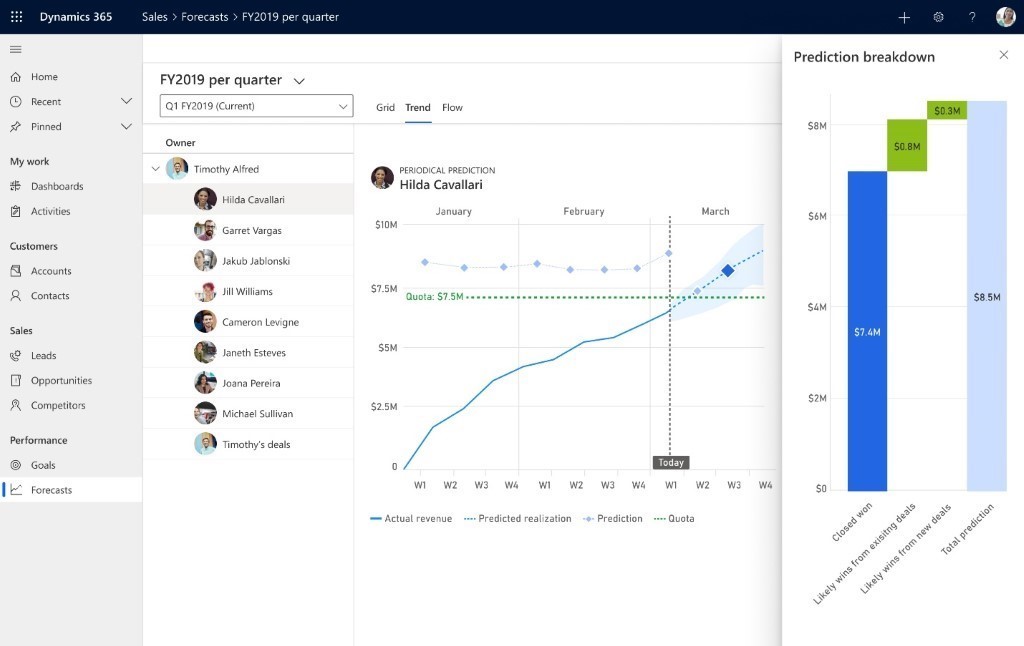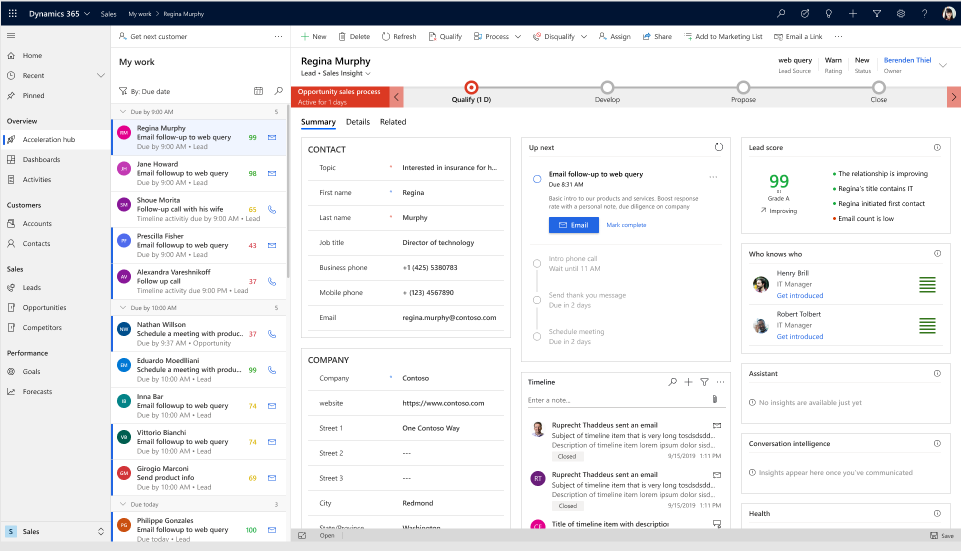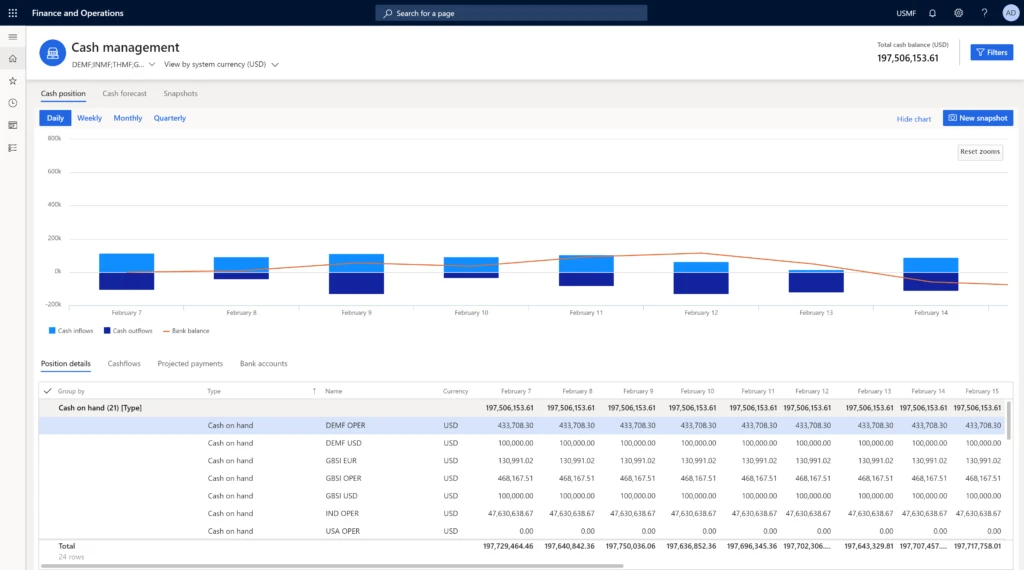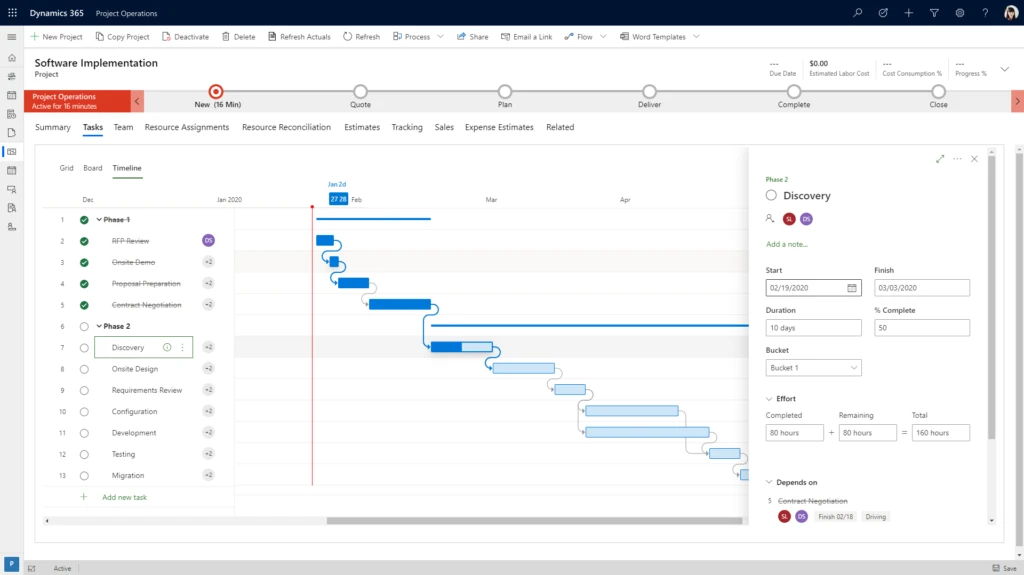New AI features connect and extend insights across the organization
Today we’re unveiling new and enhanced artificial intelligence (AI) capabilities across Dynamics 365 applications, as well as a new solution to help project-centric services organizations transform their operations.
Joining more than 400 new and updated features in the 2020 wave 1 release, these new capabilities expand a fast-growing set of applications powered by AI-driven insights, and further propel our vision to empower every organization to unify data across the business and use it to power personalized customer experiences and processes.
Personalize customer experiences with unified data and unmatched time to insight
Customers expect personalized and consistent experiences across every touchpoint. Many organizations, however, struggle to modernize the customer experience, often due to disconnected systems and data siloes that can’t deliver the full picture of the customer’s journey across websites, purchases, service calls, and mobile apps.
Updates to Microsoft Dynamics 365 Customer Insights, Microsoft’s customer data platform (CDP), will help solve these issues. We’re introducing new first and third-party data connections to further enrich customer profiles that can be updated and activated in real-time, as well as enabling deeper insights with Microsoft Azure Synapse Analytics.
Customer Insights will now uniquely enrich profiles with a combination of proprietary audience intelligence and 3rd party data sources such as demographics and interests, firmographics, market trends, and product and service usage data. Customers can also integrate Microsoft Forms Pro, the simple, powerful enterprise survey solution, to bring in the valuable voice of the customer across channels, allowing organizations to act on insights based on changing customer behavior and perception. All of this comes together to create a holistic, 360-degree view of a customer and to update those customer profiles and activities in real-time enabling organizations to know their customers and improve engagement.
Customer Insights is built on a powerful and flexible platform that enables full extensibility. Organizations can derive deeper insights by using Azure Synapse Analytics, which combines customer data with enterprise and streaming data to improve data completeness, run high-speed analytical processing, and build custom machine learning models. This allows organizations to predict customer needs with insights and get guidance on the next best action to reduce churn and capitalize on revenue opportunities for the lifetime of a customer relationship. Organizations can act upon these insights in real-time across multiple destinations through prebuilt APIs to enable onsite clienteling, website personalization, dynamic marketing campaigns, and effective ad targeting.
As part of the wave 1 release, we’re expanding the availability of Customer Insights to government cloud computing (GCC) environments helping to improve the citizen experiences essential to modern government. This means our government and public customers with higher compliance needs can now leverage Customer Insights to better understand and interact with citizens, empower employees, and transform cities at scale.
Automate sales forecasting with predictive analytics
In addition to expanded AI capabilities on our customer data platform, we’re extending the ability for sales professionals to forecast sales more accurately and introducing a new, unified engagement center for inside sales representatives.
Available now for Dynamics 365 Sales and for Dynamics 365 Sales Insights, new manual and predictive forecasting capabilities empower sales organizations to have a better understanding of the pipeline, more accurately predict results, and gain visibility into future performance.
The predictive forecasting capabilities enable the proactive decision-making needed to meet sales goals. Dynamics 365 does this by extracting patterns from customer relationship management (CRM) data, current and historical leads, won or lost opportunities, contacts, accounts, customer interactions such as emails and calls, and more data sources, and then projecting these patterns into the future. Best of all, anyone can access the insights, no data scientists or tech experts needed (a big change from some other forecasting systems).

With a new engagement center designed to accelerate sales, we’re giving each inside seller a streamlined way to quickly triage, research, and engage new leads or opportunities. This provides them with their own prioritized work queue to take action on the highest priority leads and tasks based on built-in predictive scoring from Dynamics 365 Sales Insights and new, configurable sales cadences.
The experience helps sellers stay in the context of Dynamics 365 and quickly move from one lead or opportunity to the next in an AI-prioritized work queue, without needing to switch views to take the next best action. Additional embedded AI capabilities offer sellers a path to a warm introduction, and guidance from the assistant.

Transform the back office with AI-infused finance insights
Not only are we expanding AI capabilities for customer and sales insights, we’re also bringing the power of AI to the finance department.
Microsoft Dynamics 365 Finance Insights, coming to preview in May, accelerates your digital transformation by bringing the power of AI into your finance processes. As organizations look to make decisions rapidly, reduce risk, and focus on strategic initiatives, it’s critical to free finance from repetitive, time consuming and low value daily activities. Leveraging the power of AI, Finance Insights enables you to not only quickly understand and act on your company’s cash position, but also to take proactive action to improve it. Menial tasks are automated or removed, the barrier of developing or hiring AI-expertise is bypassed, and you’re left with insights to move your business forward.

Our continued investment in expanding AI capabilities across Dynamics 365 helps your organization accelerate digital transformation initiatives while empowering employees with insights to drive better business outcomes every day.
Optimize project success and profitability with the ability to drive operational excellence across service-centric organizations
How people work today has changed, as has the way organizations run their business operations. Companies across all industries are innovating business models to support project-centric service offerings. And while business optimization has gotten easier with the rise of mobile and cloud technology, organizations continue to stitch together systems and struggle with managing data across disparate systems. These data silos within project-centric businesses and teams are negatively impacting business model transformation, customer acquisition, employee retention, project delivery, and business profitability.
Today we’re announcing a new Dynamics 365 application that connects cross-functional project teams, providing the visibility, collaboration, and insight needed to drive the success of project-centric organizations. Microsoft Dynamics 365 Project Operations, which will be generally available on October 1, 2020, delivers everything needed to optimize operations from prospect to cash, all in one application.

Dynamics 365 Project Operations is built on our unified business cloud and leverages our rich-history across front and back office, as well as project management. We’re in a unique position to connect project-centric teams around actionable data. By applying the power of Microsoft Project together with Dynamics 365, Microsoft is developing the next generation of tools to reinvent how project-centric organizations operate.

